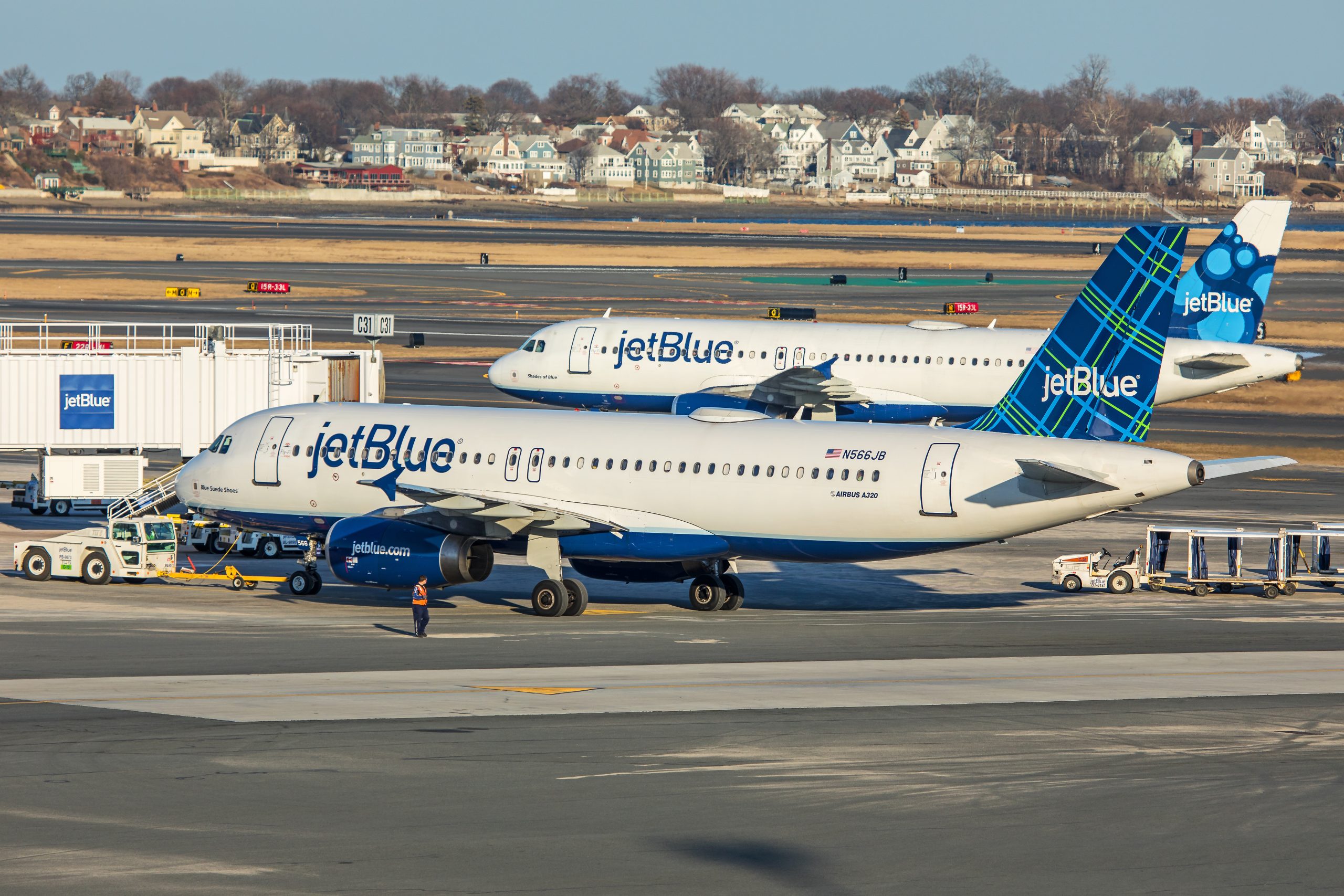
Hawaiian Slated to Return Grounded A321neos to Service
Hawaiian Airlines says it expects to return all 18 of its Airbus A321neo aircraft to revenue service in the coming…

A Flybe Dash 8-400 (Photo: Kristian Sagia/Flickr/Creative Commons License)
The U.K. government’s decision this week to defer a reported £100m ($130m) in Air Passenger Duty (APD) payments from Europe’s largest regional carrier Flybe has been met with celebration and criticism. The deal has given the airline, which is owned by a consortium including Virgin Atlantic’s parent company, the opportunity to continue trading and thrown a lifeline to Flybe’s employees.
Brian Strutton, general secretary of the British Airline Pilots Association union said: “This is good news for 2,400 Flybe staff whose jobs are secured and regional communities who would have lost their air connectivity without Flybe.”
The connectivity that Flybe provides to the U.K.’s regional communities has been perceived as the main reason that Boris Johnson’s new government has stepped in whereas leisure-oriented airlines such as Monarch and most recently Thomas Cook have been allowed to fail.
Under public service obligations (PSO) within European Union legislation, governments can designate some regional air services connections ‘which are vital for the economic and social development of the region’ as protected. In the U.K. the PSO fund is used to protect ‘existing UK air services to London where there is a risk that regional connectivity may be lost.’

The government has also announced a review of the controversial APD which levies a tax on all passengers departing U.K. airports. The current legislation on APD does not differentiate between domestic flights and flights within the European Union so it is understood that until the Brexit transition period has concluded at the end of this year the U.K. government cannot make a tax exemption for flights within the U.K.
However, there are currently several exemptions from APD including those passengers who leave on flights from airports in the Scottish Highlands and Islands region.
Though the news of government intervention to save Flybe has been met positively in some areas, the plan is being perceived as a ‘bailout’ in other quarters and declared contradictory to the U.K. government’s environmental policy seeking to reduce carbon emissions. Irish carrier Ryanair has written to the U.K. chancellor declaring that any attempt to amend the application of APD to assist U.K. carriers would ‘constitute unlawful aid.’
The chief executive of International Airlines Group (IAG), the parent company of British Airways, Willie Walsh has written to the European Commission citing the deal as a breach of state aid rules. In a letter to the transport secretary decrying the deal and calling it ‘a misuse of public funds,’ Mr. Walsh referenced BA’s long-haul rival Virgin Atlantic and Virgin’s 49 percent shareholder Delta Air Lines saying: “Virgin/Delta now want the taxpayer to pick up the tab for their mismanagement of the airline.”
Both Mr. Walsh and Ryanair chief executive Michael O’Leary are staunch critics of the U.K.’s APD.

Environmental groups including Greenpeace and Friends of the Earth condemned the deal citing a conflict with the U.K. government’s own commitments to reduce carbon emissions. A Friends of the Earth campaigner said: “It would be completely unacceptable and even reckless if the government cut air passenger duty on domestic flights. These short U.K. trips are exactly the ones we need to avoid in the drive to cut aviation climate emissions to help prevent climate breakdown. As recently as October Flybe chief executive Mark Anderson addressed environmental concerns about regional air operations. At an aviation industry event he cited the possibility of withdrawing from certain routes in the future by saying: “We will potentially say ‘Actually this makes more sense by train or this makes more sense by road.'”
John has always had a passion for aviation and through a career with Air New Zealand has gained a strong understanding of aviation operations and the strategic nature of the industry. During his career with the airline, John held multiple leadership roles and was involved in projects such as the introduction of both the 777-200 and -300 type aircraft and the development of the IFE for the 777-300. He was also part of a small team who created and published the internal communications magazines for Air New Zealand’s pilots, cabin crew and ground staff balancing a mix of corporate and social content. John is educated to postgraduate level achieving a masters degree with Distinction in Airline and Airport Management. John is currently the course director of an undergraduate commercial pilot training programme at a leading London university. In addition he is contracted as an external instructor for IATA (International Air Transport Association) and a member of the Heathrow Community Fund’s ‘Communities for Tomorrow’ panel.
Receive a daily dose of the airline industry's top stories along with market insights right in your inbox.

Hawaiian Airlines says it expects to return all 18 of its Airbus A321neo aircraft to revenue service in the coming…

On Tuesday, JetBlue announced that it has adjusted its annual revenue forecast. The carrier announced that its revenue will be…

Royal Air Maroc and Safran have deepened their collaboration in aircraft engine maintenance. In celebration of its 25th anniversary, Safran…



